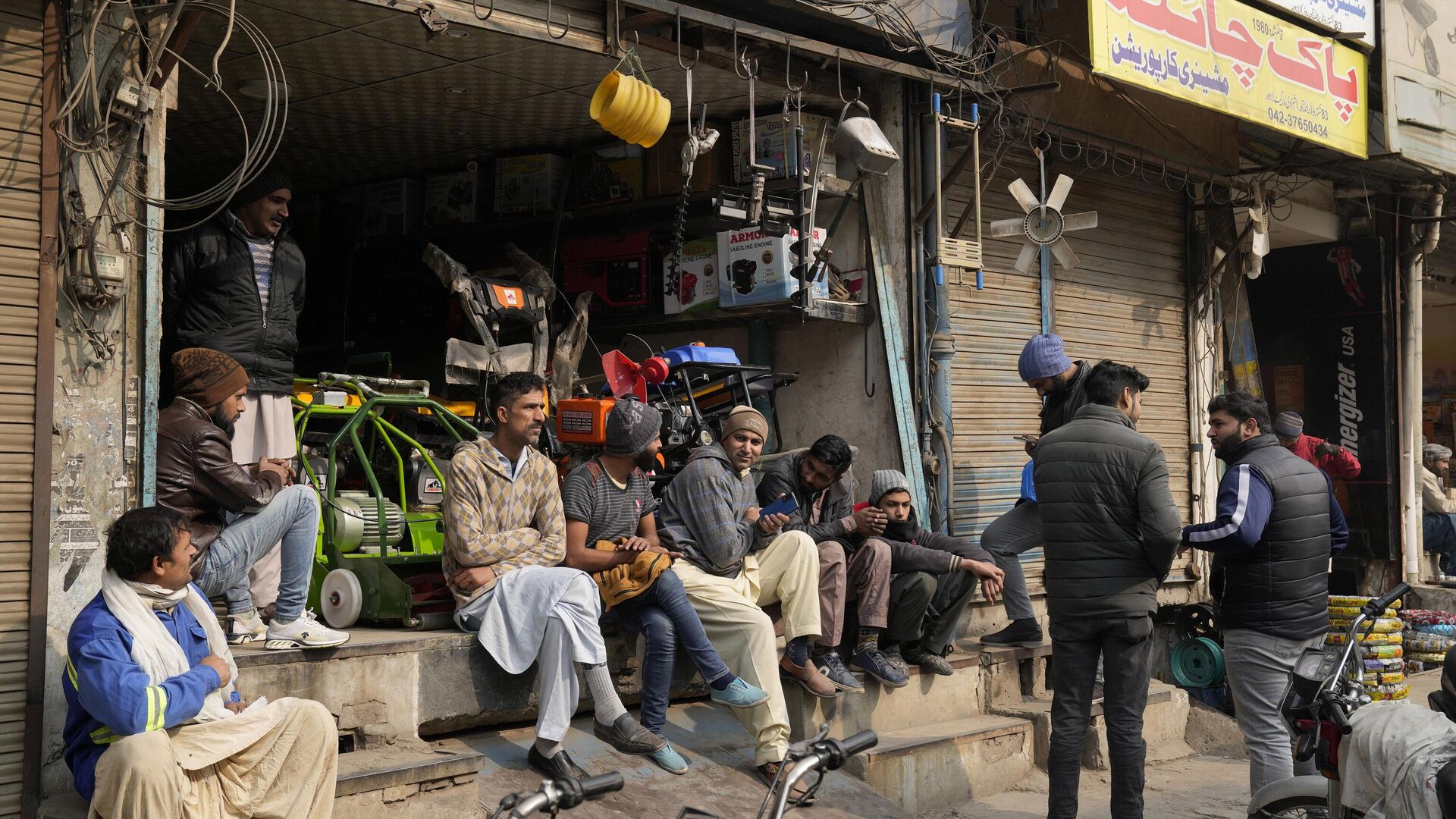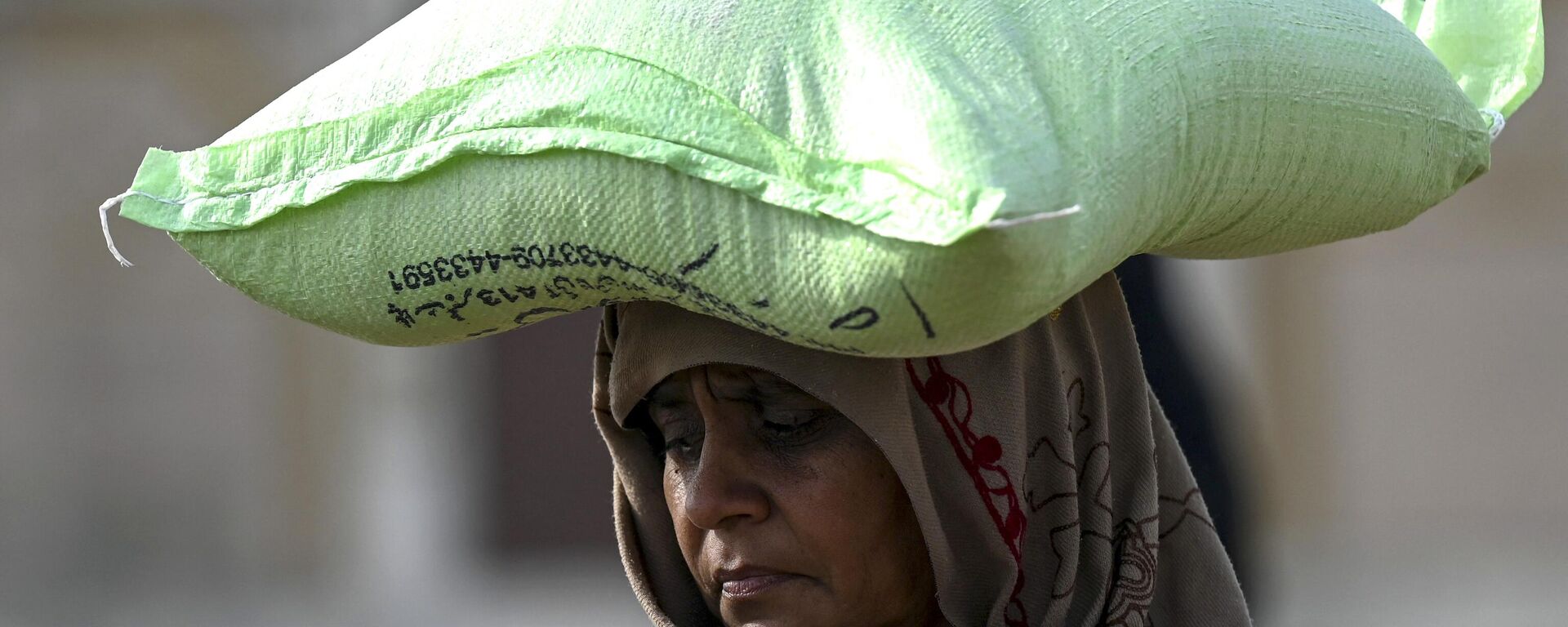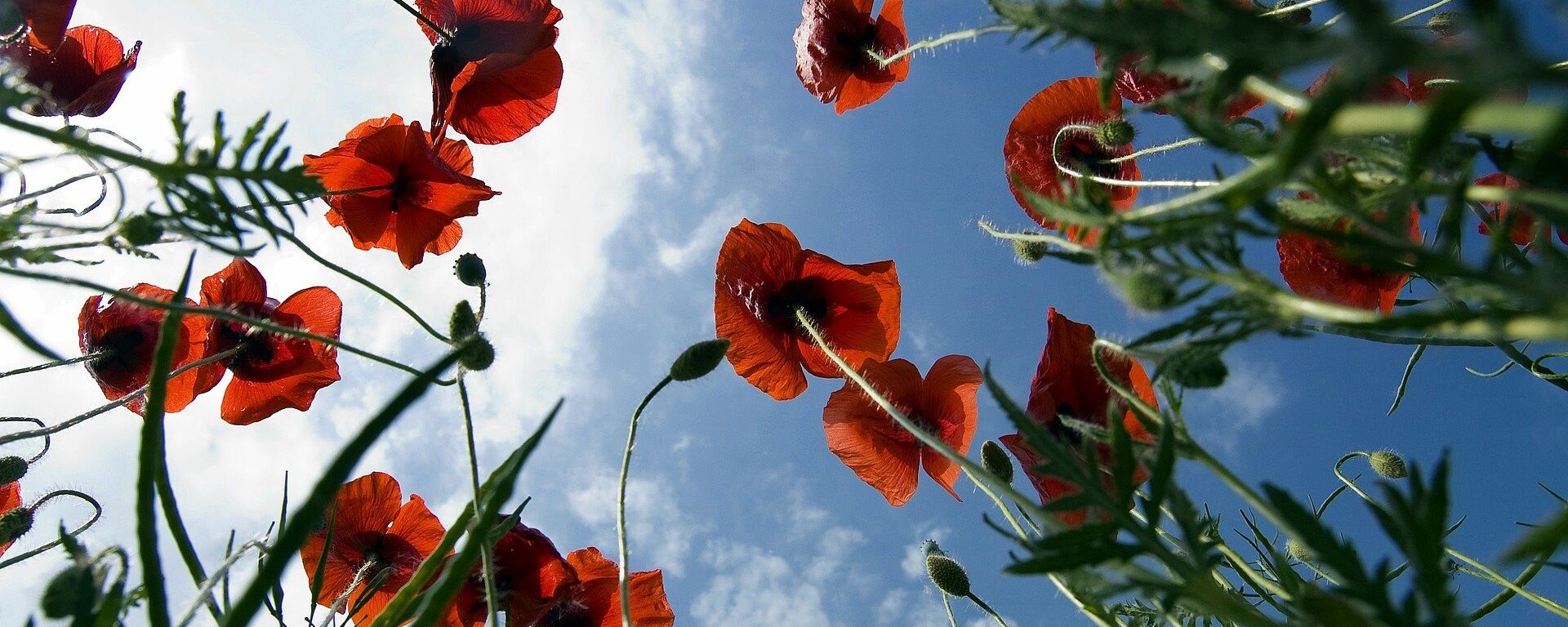https://sputniknews.in/20230131/pakistans-cost-of-living-reaches-all-time-high-as-people-struggle-to-make-ends-meet-705197.html
Pakistan's Cost of Living Reaches All-Time High as People Struggle to Make Ends Meet
Pakistan's Cost of Living Reaches All-Time High as People Struggle to Make Ends Meet
Sputnik India
On Sunday, the price of petrol witnessed another massive leap of around Rs 35 and the weekly inflation, measured by the Sensitive Price Index, posted an... 31.01.2023, Sputnik India
2023-01-31T17:22+0530
2023-01-31T17:22+0530
2023-01-31T17:22+0530
world news
pakistan
fuel prices
food crisis
energy crisis
https://cdn1.img.sputniknews.in/img/07e7/01/17/601006_0:160:3073:1888_1920x0_80_0_0_508589f9569cbec237cdd7c9548aa9a7.jpg
In recent years, Pakistan has been facing rising inflation and increased fuel prices. Inflation refers to the general increase in the price of goods and services.Sputnik contacted a cross-section of working-class people and none appeared to be immune from the currency shocks and the overall economic downturn.Many working individuals haven't had a pay rise for years, but continuous price hikes have caused their expenses to balloon, leading to severe financial imbalance and mental stress.What is Happening?One of the major reasons for inflation in Pakistan is the devaluation of the local currency, the Pakistani Rupee. On Monday the currency continued in freefall as it hit an all-time low of 270 against the US dollar.The devaluation has led to an increase in the cost of imports, pushing up the price of goods and services in the domestic market. Moreover, the government's fiscal policies, such as tax rises and subsidy cuts, have also contributed to galloping inflation.The rising fuel prices, in turn, are driving up inflation as they affect the transportation sector and swell the cost of goods and services.The primary cause of the rise in fuel prices is the increase in international crude oil prices. Pakistan imports a large portion of its petrol needs, and the fluctuation in global oil prices directly affects the domestic fuel prices.Whether a small business owner or a salaried worker barely making Rs60,000 ($230) a month, many aren’t sure how the economy collapsed, but they feel that political instability has a lot to do with the situation as they believe politicians are unconcerned about the struggling of the masses.On Sunday, Pakistan's finance minister Ishaq Dar said at a press conference that the petrol price will rise by 35 rupees to 249.80 rupees per liter and high-speed diesel would go up to 262.8 rupees per liter.Pakistanis did not take the announcement well and took to social media to express their condemnation of the price hike.Shabbar Zaidi, the former chairman of Pakistan’s Federal Bureau of Revenue, posted on Twitter: "Increase of Rs 35 in petroleum. Inflationary spiral. How will the poor survive? Why is this nation so insensitive to the simple question of life of poor & middle classes. When this had to be done then why so late? Pakistan is not workable in the present economic paradigm. Rescue."Reduced Purchasing PowerThere is no doubt that the rising inflation and fuel prices have a significant impact on the economy and the daily lives of people in Pakistan. The increase in prices of goods and services has reduced the purchasing power of consumers, leading to a decrease in demand and a slowdown in economic growth.Furthermore, the high fuel prices are affecting the transportation sector, leading to increased costs for both consumers and businesses.The owner of a catering concern, Maleeha Khalid, told Sputnik that she is struggling with keeping her business running in these turbulent times."Inflation has also had another effect: the delivery service that I used to use for hunter beef deliveries has unfortunately shut down. Some people say the service couldn't cope with the rising petrol prices so they had to let their riders go," she added.She added that because the trusted riders are no longer available she had to shut down her business temporarily to find a new company, but so far other delivery services are asking a high price which is not feasible for her.Pakistan is facing an increasingly severe balance of payments crisis and is anxious to secure external financing, with less than three weeks’ import cover in its foreign exchange reserves.The government reportedly is taking various measures to control inflation and fuel prices. For instance, it has implemented price controls on essential goods and services, and has also increased subsidies on certain items to keep prices low.The government has also implemented measures to improve tax collection and reduce the fiscal deficit, which will help in reducing inflation over time. But at present the situation in the country is dire and people are not happy.
https://sputniknews.in/20230130/pakistan-rupee-continues-freefall-hitting-all-time-low-of-270-against-us-dollar-693440.html
https://sputniknews.in/20230129/the-silent-killer-booming-billion-dollar-drug-trade-in-pakistan-683060.html
pakistan
Sputnik India
feedback.hindi@sputniknews.com
+74956456601
MIA „Rossiya Segodnya“
2023
Aneela Rashid
https://cdn1.img.sputniknews.in/img/07e6/0c/0d/74548_0:0:485:484_100x100_80_0_0_821526e967ae85d041e2d30ee34fa1de.jpg
Aneela Rashid
https://cdn1.img.sputniknews.in/img/07e6/0c/0d/74548_0:0:485:484_100x100_80_0_0_821526e967ae85d041e2d30ee34fa1de.jpg
News
en_IN
Sputnik India
feedback.hindi@sputniknews.com
+74956456601
MIA „Rossiya Segodnya“
Sputnik India
feedback.hindi@sputniknews.com
+74956456601
MIA „Rossiya Segodnya“
Aneela Rashid
https://cdn1.img.sputniknews.in/img/07e6/0c/0d/74548_0:0:485:484_100x100_80_0_0_821526e967ae85d041e2d30ee34fa1de.jpg
pakistan, fuel prices, food crisis, energy crisis
pakistan, fuel prices, food crisis, energy crisis
Pakistan's Cost of Living Reaches All-Time High as People Struggle to Make Ends Meet
On Sunday, the price of petrol witnessed another massive leap of around Rs 35 and the weekly inflation, measured by the Sensitive Price Index, posted an increase of 32.57 percent. This comes at an already turbulent time for the country's economy as millions are making changes to their lifestyle to get by.
In recent years, Pakistan has been facing rising inflation and increased fuel prices. Inflation refers to the general increase in the price of goods and services.
Sputnik contacted a cross-section of working-class people and none appeared to be immune from the currency shocks and the overall economic downturn.
"I drive my children to school and then I get to work by myself. In the late afternoon I pick my kids up and we drive back home, but now with the cost of petrol all this driving is costing me half my salary! Then there are the groceries, monthly electricity and gas bills, and school tuition fees. How are we supposed to manage all of that when everything has gotten expensive all at once?" Hina Jawad, a Lahore-based teacher and a mother of two, told Sputnik.
Many working individuals haven't had a pay rise for years, but continuous price hikes have caused their expenses to balloon, leading to severe financial imbalance and mental stress.
One of the major reasons for inflation in Pakistan is the devaluation of the local currency, the Pakistani Rupee. On Monday the currency continued in freefall as it hit an all-time low of 270 against the US dollar.
The devaluation has led to an increase in the cost of imports, pushing up the price of goods and services in the domestic market. Moreover, the government's fiscal policies, such as tax rises and subsidy cuts, have also contributed to galloping inflation.
The rising fuel prices, in turn, are driving up inflation as they affect the transportation sector and swell the cost of goods and services.
The primary cause of the rise in fuel prices is the increase in international crude oil prices. Pakistan imports a large portion of its petrol needs, and the fluctuation in global oil prices directly affects the domestic fuel prices.
Whether a small business owner or a salaried worker barely making Rs60,000 ($230) a month, many aren’t sure how the economy collapsed, but they feel that political instability has a lot to do with the situation as they believe politicians are unconcerned about the struggling of the masses.
On Sunday, Pakistan's finance minister Ishaq Dar said at a press conference that the petrol price will rise by 35 rupees to 249.80 rupees per liter and high-speed diesel would go up to 262.8 rupees per liter.
"We will have to take the rise in international oil prices and the devaluation of the rupee into account,” Dar said. "This rise is being done immediately on the recommendation of the oil and gas regulatory authority who said there were reports of artificial shortages and hoarding of fuel in anticipation of price rises - hence this price rise is being done immediately to combat this."
Pakistanis did not take the announcement well and took to social media to express their condemnation of the price hike.
Zartaj Rathore, a Lahore resident, said on Twitter: "Sadly this inflation will take people's lives. [Government officials] are not cutting their luxury expenditure and all the burden and hurdles will always be for the people who are paying huge taxes."
Shabbar Zaidi, the former chairman of Pakistan’s Federal Bureau of Revenue, posted on Twitter: "Increase of Rs 35 in petroleum. Inflationary spiral. How will the poor survive? Why is this nation so insensitive to the simple question of life of poor & middle classes. When this had to be done then why so late? Pakistan is not workable in the present economic paradigm. Rescue."
There is no doubt that the rising inflation and fuel prices have a significant impact on the economy and the daily lives of people in Pakistan. The increase in prices of goods and services has reduced the purchasing power of consumers, leading to a decrease in demand and a slowdown in economic growth.
Furthermore, the high fuel prices are affecting the transportation sector, leading to increased costs for both consumers and businesses.
The owner of a catering concern, Maleeha Khalid, told Sputnik that she is struggling with keeping her business running in these turbulent times.
"I cook hunter beef and as you know it takes hours for the beef to become tender and juicy. I marinate it a few days in advance, it gives the beef a delicious aroma. People order hunter beef from us for sandwiches, for house parties and so forth. Lately however, because of the low gas in my kitchen the hunter beef takes double the time to cook," Khalid explained.
"Inflation has also had another effect: the delivery service that I used to use for hunter beef deliveries has unfortunately shut down. Some people say the service couldn't cope with the rising petrol prices so they had to let their riders go," she added.
She added that because the trusted riders are no longer available she had to shut down her business temporarily to find a new company, but so far other delivery services are asking a high price which is not feasible for her.
"Also I want to say that because of inflation, people's buying power has lessened, so my hunter beef which is a high-end product as it lasts long and beef is quite expensive these days, the demand for my product has decreased. If a few months ago I had five or six daily orders now I just have around three every other day. People are definitely spending less to cope with the rising prices. Unfortunately for me, I am losing a good income that really helped me with my budget," Khalid told Sputnik.
Pakistan is facing an increasingly severe balance of payments crisis and is anxious to secure external financing, with less than three weeks’ import cover in its foreign exchange reserves.
The government reportedly is taking various measures to control inflation and fuel prices. For instance, it has implemented price controls on essential goods and services, and has also increased subsidies on certain items to keep prices low.
The government has also implemented measures to improve tax collection and reduce the fiscal deficit, which will help in reducing inflation over time. But at present the situation in the country is dire and people are not happy.




